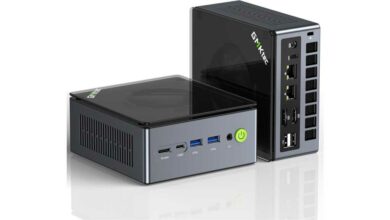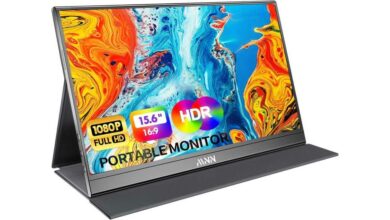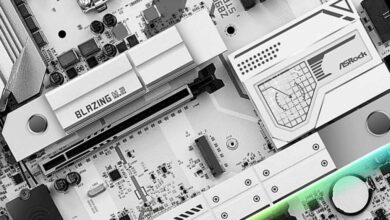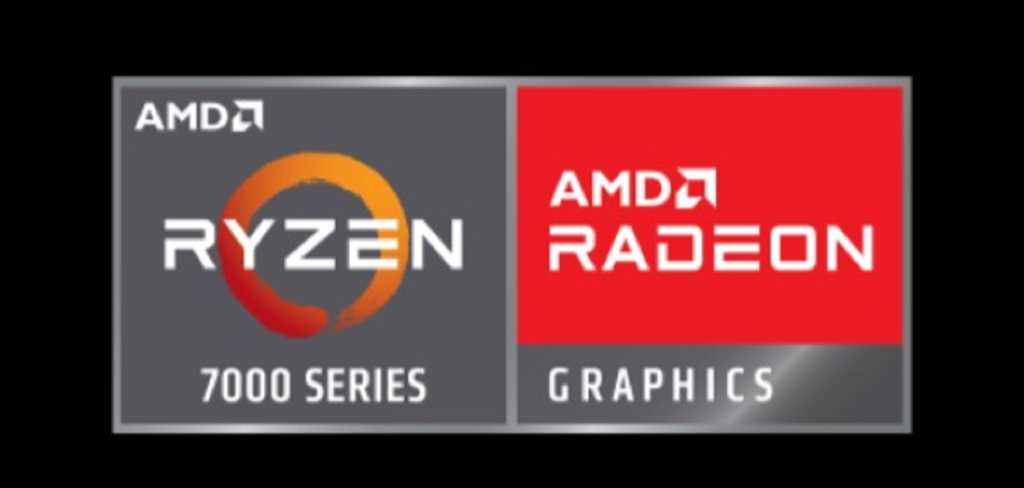
AMD continues its march into Chromebooks at the moment with its first Ryzen 7000 processors for the cheap laptops powered by Chrome OS.
AMD introduced the Ryzen 7000 Cell collection this previous January, bouncing throughout 4 separate architectures that make up the brand new processors for laptops. AMD’s efforts in Chromebooks date again to 2020, with Ryzen 5000 C-series chips for Chromebooks debuting final 12 months.
Now, AMD has introduced 4 new C-series chips for Chromebooks: the Ryzen 5 7520C, the Ryzen 3 7320C, the Athlon Gold 7220C, and the Athlon Silver 7120C. AMD says they’re all designed for mainstream Chromebooks.
The small print of the brand new chips are:
- Ryzen 5 7520C: 4 cores/8 threads, 2.8GHz base, 4.3GHz increase
- Ryzen 3 7320C: 4 cores/8 threads, 2.4GHz base, 4.1GHz increase
- Athlon Gold 7220C: 2 cores/4 threads, 2.4GHz base, 3.7GHz increase
- Athlon Silver 7120C: 2 cores/2 threads, 2.4GHz base. 3.5GHz increase
Bear in mind, based on AMD’s cell Ryzen naming scheme, all of those chips are from the identical 6nm “Zen 2” technology. All eat 15W, and all use the identical Radeon 610M graphics core.
AMD
Due to this, AMD is drawing comparisons with its two chief rivals: The corporate claims these chips are inside shouting distance of the battery lifetime of the MediaTek Kompanio Arm chip, whereas providing larger efficiency; equally, they’ve higher battery life than an Intel Core i3-N305 Chromebook chip, whereas edging it out in efficiency, too. AMD is claiming {that a} Chromebook with a 57 watt-hour battery and a 15.6-inch show will function for about 17.1 hours.
Dell will use the 7020C-series chips contained in the Dell Latitude 3445, starting within the second quarter, and AMD will ship the Asus Chromebook CM34 Flip (CM3401), a 14-inch Chromebook, with the Ryzen 5 7520C inside it.
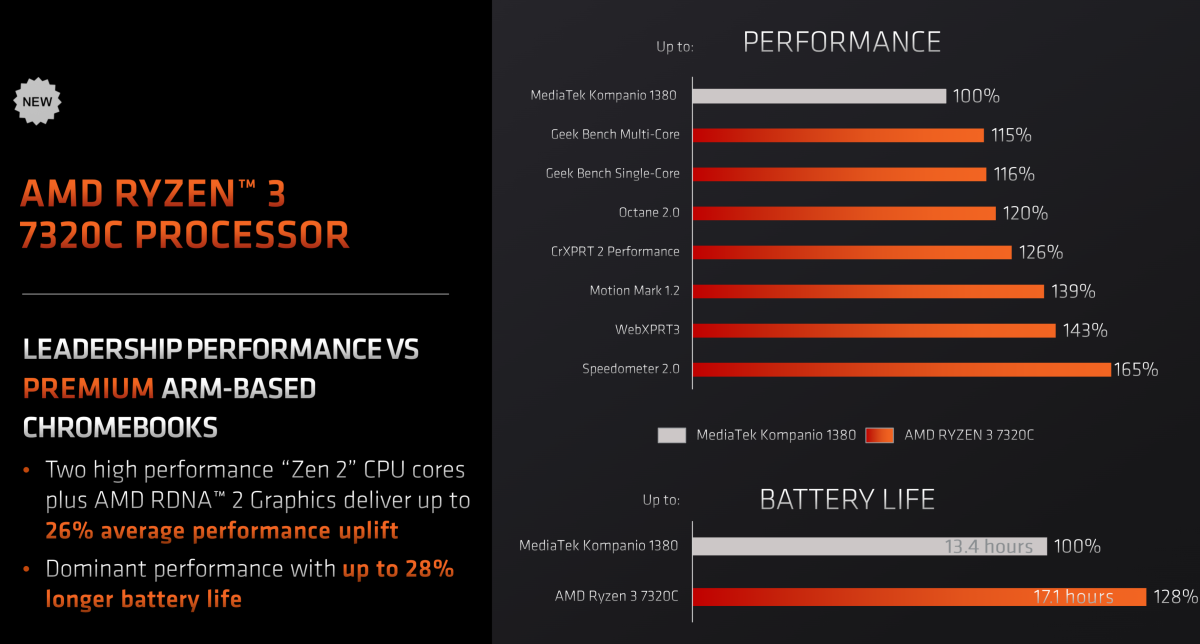
AMD
Chromebook gross sales have plunged as demand spiked throughout the pandemic and shortly fell off. Worldwide shipments of Chromebooks declined by 48 % in 2022, after spiking 180.5 % progress in 2021, based on IDC. AMD remains to be a really minor participant, with about 10 % of the market. MediaTek and Intel maintain 35 % and 30 %, respectively.





